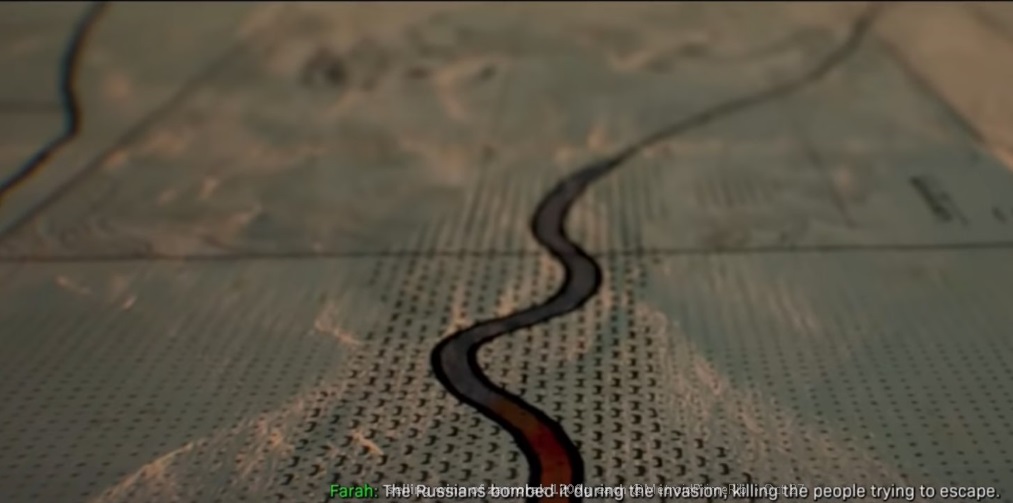The latest Call of Duty has taken the infamous massacre of fleeing Iraqi soldiers and civilians from Kuwait back in 1991 and made it into a war crime perpetrated by the Russians.

Only a few weeks ago I watched Rambo for the first time. I’d watched First Blood years ago and that turned out to be a decent if rightwing revenge fantasy that made sure to show how hollow revenge was and had Rambo lose at the end. I’d never watched Rambo because, well, it looked like it was a dumb power fantasy about going back to ‘Nam and finally get to kick commie butt without any of the complexities that made the first movie so interesting. And indeed Rambo turned out to be just what I expected, except much dumber. The enemy is cartoonishly evil, a beautiful Vietnamese ally dies to underscore Rambo’s greatness and lines like “Do we get to win this time” are uttered with a hilarious sincirity by Stallone. the only thing funnier in all of this was knowning Rambo III was dedicated to the people who’d blow up the WTC two decades later.
Obviously silly as Rambo was, it’s Nobel Prize material compared to what Call of Duty did. To just boldly take one of the most notorious war crimes of the first Gulf War, fictionalise it and flip it so that it was the old Cold War enemy did it is dumber than anything the Rambo series ever got up to. Even for a brogamer first person shooter like Call of Duty it’s beyond the pale. Bad enough to have the developers recycle other people’s suffering as background material for your game. But blatantly rewriting your own war crimes so you can still be the good guys? That’s disgusting on a whole other level.

